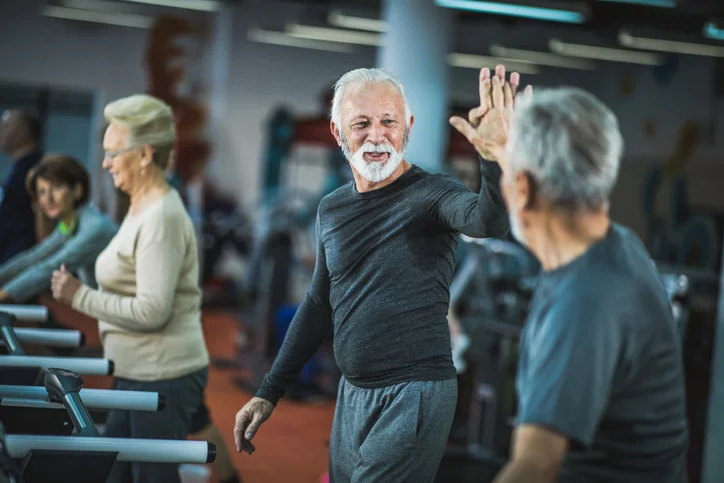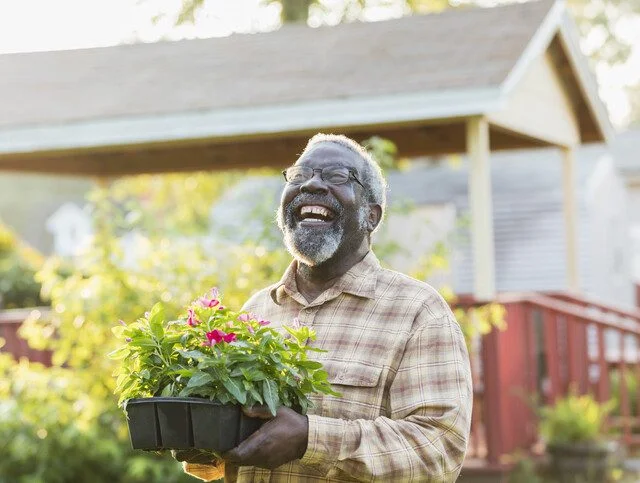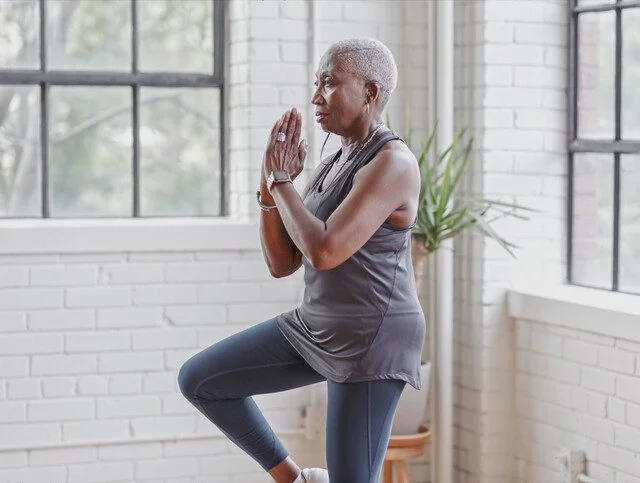Many people believe that intense, high-impact exercise is better than gentler forms of exercise. On the contrary, low-impact exercise can have just as many benefits. Walking, in fact, is a powerful exercise that offers vast physical and mental health benefits for seniors. Here, we’ll discuss some of those benefits. However, always be sure to speak to a medical professional before making changes to your exercise routine.
Maintaining a Healthy Weight
Walking can help you keep a healthy weight in a few ways. Physical activity burns calories, which can aid in weight loss or help prevent weight gain and obesity. In addition to burning calories, walking increases your body’s demand for energy which can boost your metabolism.
Along with staying active, you also want to eat a nutritious diet to maintain a healthy weight. Prioritize lean proteins, whole grains, fruits, vegetables and healthy fats, and cut out processed foods that are high in sodium and sugar. Staying hydrated is key; try to drink eight cups of water per day.
Reducing the Risk of Falls
Falls can be fatal to older adults, so you will want to take measures to improve your balance and coordination. Walking regularly can help reduce your fall risk. This exercise keeps your musculoskeletal system strong and is especially helpful for strengthening your ankle and foot muscles, which stabilize your hips, back and neck. This can improve your coordination and balance, reducing your risk of falls.
Improving Cardiovascular Health
A sedentary lifestyle is a risk factor for heart disease. Walking helps lower the risk of chronic illnesses and health events linked to poor cardiovascular health, such as stroke, heart attack, heart disease, high blood pressure, premature death and more. How? Walking lowers your blood pressure, strengthens your heart and encourages blood flow. Walking can also help support your immune system, as it improves your lymphatic system’s circulation.
Enhancing Mental Health and Sleep Quality
Walking can improve different aspects of your mental health. Some studies have found that walking helps cognition by boosting memory and concentration. It also helps lower cortisol, the stress hormone, and releases endorphins which can lessen feelings of stress, anxiety and depression and can improve your overall mood and sense of well-being.
The mental health improvements you experience from walking, along with the energy expenditure that it requires, can also help you get a better night’s rest.
Creating Social Interactions That Reduce Loneliness
Loneliness and isolation can wreak havoc on the mental health of anyone at any age. Maintaining relationships with friends and family is a critical part of your well-being. Walking with others can make exercise more enjoyable and even encourage you to keep up with regular physical activity.
Get a group of people together for a daily or weekly walk. See if there’s a walking group that you can join in your community. Ask your friends or family if they want to join you for a stroll. If your loved ones live far, plan to catch up with them on the phone while you walk.
Stay Active and Engaged at Querencia
You want to aim to walk for 150 minutes per week, which averages out to 30 minutes per day, five days per week, to reap the benefits of walking. This goal can be much more achievable if you live in a community that prioritizes health and wellness.
Querencia at Barton Creek is a premier senior living community that offers services, amenities and activities designed to enhance our resident’s health. We have butterfly and resident gardens, a dog park and walking paths for our residents to enjoy the beauty and benefits of walking in nature. Our fitness center and aerobics studio make it easy for you to get your steps in and enjoy other forms of exercise – plus, they’re an easy way to make friends!
Contact us today to see how you can live well at Querencia.


